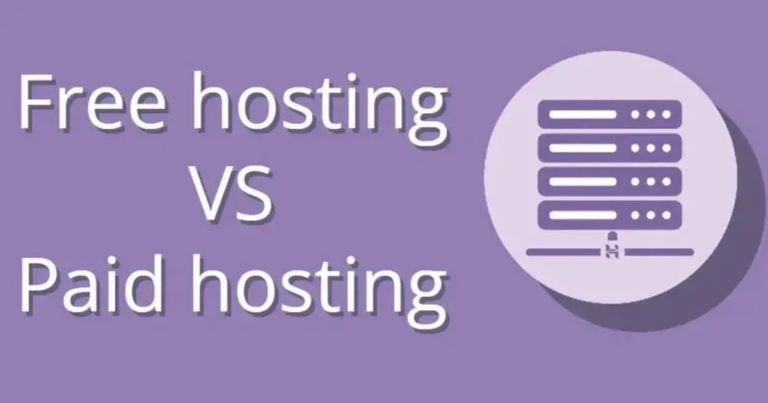The Ultimate Guide To Managed Hosting For Startups
For startups looking to establish a strong online presence, choosing the right hosting solution is crucial. Managed hosting offers a hassle-free way to maintain website performance, security, and scalability without the need for in-depth technical knowledge. This guide explores the benefits, features, and considerations of managed hosting for startups.
What is Managed Hosting?
1. Definition of Managed Hosting
Managed hosting is a service where a hosting provider takes care of server management, maintenance, security, and performance optimization on behalf of the client. This allows businesses to focus on growth without worrying about technical complexities.
2. How Managed Hosting Works
- The hosting provider handles server setup and configuration.
- Regular updates, security patches, and backups are performed automatically.
- 24/7 monitoring ensures uptime and quick issue resolution.
Benefits of Managed Hosting for Startups
1. Enhanced Security
Managed hosting providers implement strong security measures, including:
- Firewalls and malware scanning
- Regular software updates and patches
- SSL certificates for encrypted connections
2. Scalability and Flexibility
Startups often experience fluctuating traffic levels. Managed hosting allows businesses to scale resources up or down as needed without downtime.
3. Improved Website Performance
Managed hosting includes performance optimization features such as:
- Content delivery networks (CDNs) for faster loading speeds
- Caching mechanisms to reduce server load
- Optimized server configurations for better performance
4. 24/7 Technical Support
With managed hosting, startups get round-the-clock support from experts, ensuring that any issues are resolved quickly.
5. Automatic Backups and Disaster Recovery
Most managed hosting plans include daily or weekly backups, ensuring data can be restored in case of accidental deletion or cyberattacks.
Key Features to Look for in Managed Hosting
1. Server Management

- Automated updates and maintenance
- Performance monitoring and optimization
2. Security Features
- DDoS protection and threat detection
- SSL certificate and secure access controls
3. Backup and Recovery
- Scheduled backups and easy restoration
- Disaster recovery plans
4. Scalability
- Ability to upgrade resources as needed
- Cloud-based options for flexibility
5. Technical Support
- 24/7 customer service via chat, email, and phone
- Expert assistance for troubleshooting
Choosing the Right Managed Hosting Provider
1. Assess Your Business Needs
Consider your startup’s requirements in terms of traffic, storage, and budget before selecting a hosting plan.
2. Compare Hosting Providers
Look for providers that offer:
- Reliable uptime (99.9% or higher)
- Strong security measures
- Affordable pricing and scalability options
3. Read Customer Reviews
Check online reviews and testimonials to gauge the reliability and customer support quality of potential hosting providers.
4. Check Service Level Agreements (SLAs)
SLAs outline the provider’s commitment to uptime, support response times, and compensation in case of service failures.
Managed Hosting vs. Unmanaged Hosting
1. Managed Hosting

- Hosting provider handles technical management.
- Suitable for startups without in-house IT teams.
- Includes security, updates, and backups.
2. Unmanaged Hosting
- The user is responsible for server setup and maintenance.
- Requires technical expertise.
- More customizable but time-consuming.
Common Challenges and How to Overcome Them
1. Cost Considerations
Managed hosting is often more expensive than unmanaged hosting. However, startups can save money by choosing a plan that matches their needs and avoiding unnecessary add-ons.
2. Vendor Lock-in
Some managed hosting providers make it difficult to migrate to another service. Ensure that your hosting provider allows easy migration if needed.
3. Limited Customization
Managed hosting limits direct server access. If customization is necessary, choose a provider that offers flexible configurations.
Also Read: Free vs Paid Hosting For E-commerce Startups
Conclusion
Managed hosting is an ideal solution for startups looking for a reliable, secure, and scalable hosting environment. By outsourcing technical management, businesses can focus on growth without worrying about server maintenance and security. When choosing a provider, consider factors such as security, support, scalability, and pricing to find the best fit for your startup.
FAQs
1. Is managed hosting worth it for startups?
Yes, managed hosting allows startups to focus on business growth while leaving technical tasks to experts.
2. What is the difference between managed and unmanaged hosting?
Managed hosting includes server maintenance, security, and backups, while unmanaged hosting requires the user to handle these tasks.
3. Can I upgrade my managed hosting plan as my startup grows?
Yes, most managed hosting providers offer scalable plans that allow you to increase resources as needed.
4. How do I choose the right managed hosting provider?
Look for features like security, scalability, support, and pricing to find the best provider for your needs.
5. Do I need technical knowledge to use managed hosting?
No, managed hosting is designed to be user-friendly, with technical support available for assistance.







